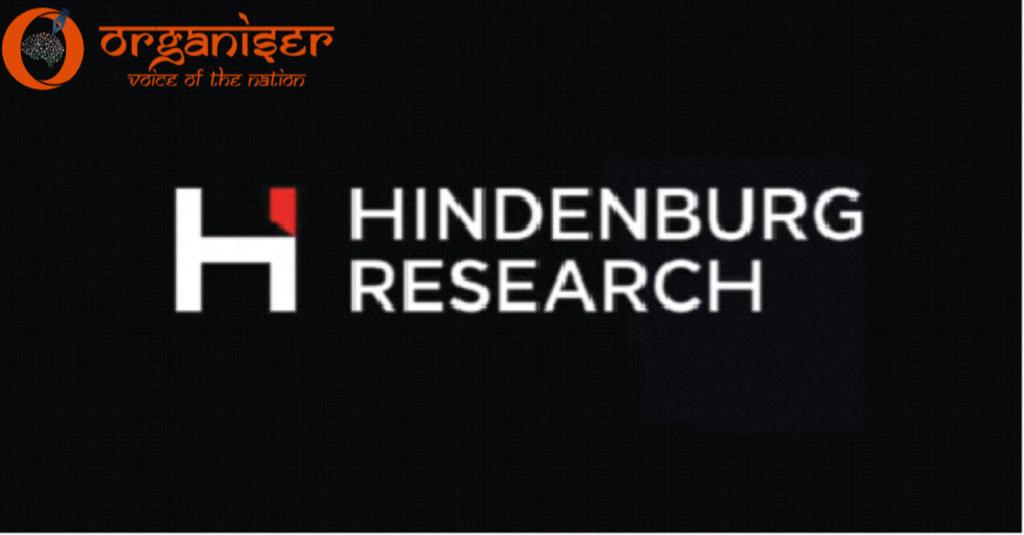Hindenburg Controversy: A Malafide intent to halt India’s economic growth
At a time when many developed economies are on the verge of recession, India continues to progress. In this background, the Hindenburg research seems to be a well-organised conspiracy against India.

The term ‘arm’s length transaction’ is of extreme importance in the financial landscape of the modern world. This aspect of the Hindenburg Research’s report on the Adani conglomerate later, but first, a look at global macroeconomic data. And even before this data, here’s one unmissable comment from the recently concluded World Economic Forum Davos 2023 meeting. “Exceedingly well” – these were the words the Governor of the Bank of Japan (BOJ) used when he referred to India’s present economic progress during the event.
The remarks of the BOJ Governor were seconded by many top global executives, including equipment maker Nokia’s CEO and telecom company Ericsson’s head. In fact, many prominent foreign publications, including CNBC, highlighted how India’s economic progress and anticipated advancements in the near future brought relief during the subdued Davos event that was largely overshadowed by fears of a global slowdown and inflationary pressures cutting across continents.
Bringing India down
Of late, prices have hovered at very high levels in almost every country, including most advanced countries like the US and the UK and emerging economies like China and India. This has eroded the purchasing power of households, which has hit demand and consumption. The housing markets of virtually all developed countries are facing correction both in terms of prices and sales volume. Overall, the US economy contracted during the first half of last year, while that of China was hit by severe headwinds in the full year of 2022.
On the other hand, India is expected to grow at a pace of nearly 6 per cent in FY 2023, which is twice China’s full-year 2023 growth figure of 3 per cent. Undeniably, the Adani Group – which has interests in virtually every major sector, including infrastructure (roads, port and logistics, airports), materials and metals (cement, copper, PVC), energy (renewables) and consumer goods (food and FMCG) – is set to play a vital role alongside conglomerates like Reliance and Tata in shaping the Indian economy and the financial well-being of Indian families in the near to medium term.
According to The Economist, “the (Hindenburg-Adani) episode has also drawn the world’s attention to one of India’s corporate success stories, and a significant motor of the country’s recent economic growth”. This, in fact, sums up the entire controversy
While the world is facing pressure from all sides, which includes a protracted war in Eastern Europe, India has its resilient consumer class and well-placed corporates to power its growth engine. This is probably not something that a few countries, especially sworn enemies like China and its ‘all-weather’ ally Pakistan, would want. Hindenburg Research’s report on Adani could be a possible attempt by a foreign enemy in a bid to derail the country’s growth engine.

Non-arm’s length transaction
The term ‘arm’s length transaction’ can be easily understood with an example from the real estate market. When the parties to a transaction are strangers, the agreed-upon property price is usually what the fair market value is. This is because each party is looking at its own interest and has no vested interest in the other. By contrast, if the deal involves two related parties at non-arm’s length, they can distort the price and manipulate the market. The question is, does Hindenburg Research have no vested interests?
Indeed, the New York-based firm has a lot at stake. It is a short seller, which means it bets on the prices of any particular company’s stock to fall in the near term. There is a famous episode of Hindenburg Research making money by short-selling electric truck manufacturer Nikola Corp’s stock. The firm published a negative report on the company’s tech developments, which led to a significant drop in the market cap of Nikola.
In this case too, by terming Adani Group “the largest con”, Hindenburg Research wants the share price to plummet and to book gains from this event immediately.
The intended outcome was attained when Adani’s stocks dropped sharply in the aftermath of the report, with even the Life Insurance Corporation’s and State Bank of India’s Adani exposure coming under pressure. How far this would go is a wait-and-watch game. However, the report has already done much damage, both pecuniary and non-pecuniary.
A malicious act
A leading publication, The Economist, has gone on to say, “(the Hindenburg-Adani) episode has also drawn the world’s attention to one of India’s corporate success stories, and a significant motor of the country’s recent economic growth”. This in fact, sums up the entire controversy. The report is a direct attack on India’s corporate landscape, of which Adani and other big entities constitute a significant part. While on the one hand, the report leads to direct pecuniary benefits accruing to the so-called whistle-blower that has shorted Adani’s stocks, on the other hand, it can deal a major blow to the country’s growth engine.
Separately, it is an attack that can have a far-reaching devastating impact on all Indian households because both private and public sector banks, in which these households keep their savings, have exposure to the Adani conglomerate. It is in the best interest of the country and its corporate class to fight back using legal means so that the mala fide intent – including Hindenburg Research’s profit by short selling and the bid to deal a blow to India’s economic growth amid a slowing world economy – is exposed.
(The article “Hindenburg Controversy: A Malafide intent to halt India’s economic growth” published in ‘Organiser’)